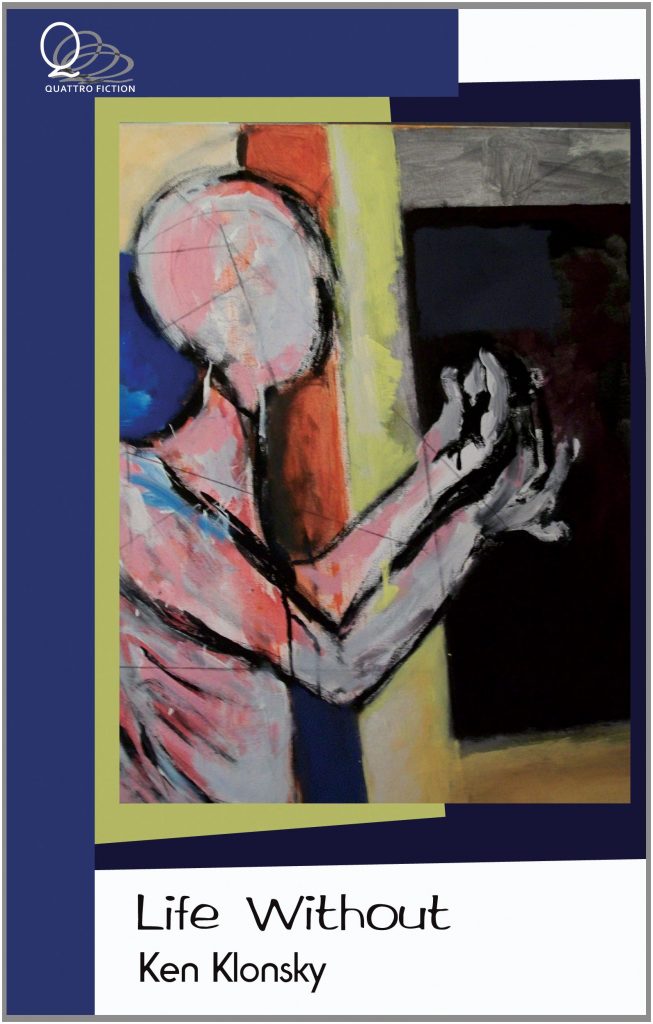
Like Against God, which I looked at in my previous post, Life Without is a novella from Toronto-based Quattro Press. The phrase “life without” is an abbreviation of “life without possibility of parole” which, in a state like New York, is the most severe sentence a person can receive. Joel Ascher has been accused of murdering his pregnant wife, Marsha. Joel is not a sophisticated man. He drives a cab and collects vintage opera recordings in his spare time. It’s easy to see how a man like Joel could fall hapless into the jaws of the justice beast. The drama of Life Without doesn’t lie in questions of guilt or innocence; Klonsky leaves the reader with no doubt of Joel’s innocence. This is no TV police procedural with a pat resolution after the next commercial break. Instead, the drama lies in the play between hope and despair that we experience with Joel as he’s drawn on by the possibility of release, then thrown back by its disappointment.
We learn with Joel that in a society dominated by consumerism, a prisoner is a commodity that generates revenue; there is no incentive to get prisoners out of prison, not even the innocent ones. We see this most clearly in Joel’s relationship to his brother, who holds a power of attorney. It becomes apparent that his brother has been dipping into his savings for personal use on the assumption that Joel will never be released. Naturally, that gives the brother no incentive to help find new evidence to prove his innocence. Joel is a cash cow and everyone is milking him—his brother, lawyer, private detective, the guards, and the state, which uses him as cheap labour.
Life Without is an austere book. It documents injustice in a system that purports to deliver justice. It presents the dark underbelly of the values we claim for ourselves in the modern world.